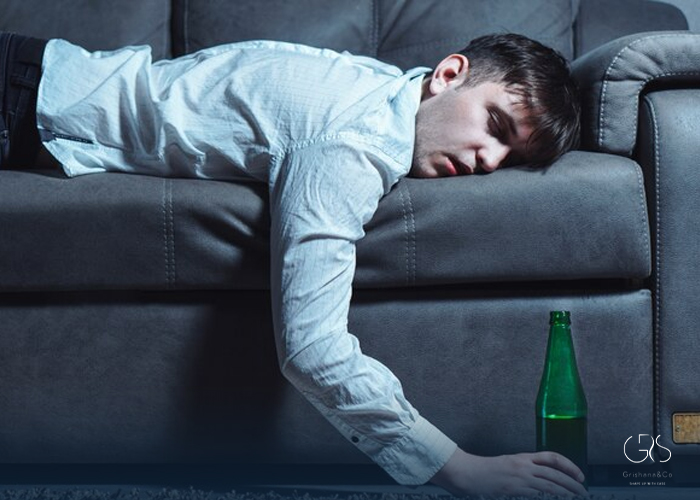Experiencing anxiety after a night of drinking is an all-too-common phenomenon, leaving many individuals wondering about its underlying triggers. While alcohol is often viewed as a means of relaxation and socialization, its effects on mental and emotional well-being extend beyond the night of indulgence. This article explores the reasons that can contribute to post-alcohol anxiety, taking into account relevant statistics and diverse perspectives.
Chemical Imbalance:
Alcohol is a known depressant that affects the central nervous system, altering the balance of neurotransmitters in the brain. Consuming alcohol in excessive amounts can disrupt the chemicals responsible for stabilizing mood, leading to feelings of anxiety the following day. The imbalance caused by alcohol’s impact on gamma-aminobutyric acid (GABA) and glutamate neurotransmitters can result in heightened feelings of alertness and unease.
Hangover Symptoms:
Hangover symptoms, including headache, dehydration, fatigue, and irritability, can aggravate anxiety. Research indicates that hangovers affect cognitive abilities, potentially intensifying the negative mood states associated with anxiety. The combination of physical discomfort and cognitive impairment can contribute to heightened feelings of stress and unease.

Alcohol-induced Sleep Disturbances:
While alcohol is initially sedative, it can disrupt the quality of sleep as the night progresses. Studies show that drinking alcohol before bed can disrupt REM sleep, which is vital for mental restoration and emotional regulation. Poor-quality sleep can exacerbate feelings of anxiety and contribute to a vicious cycle of anxiety and disrupted sleep.

Pre-existing Mental Health Conditions:
Individuals with pre-existing mental health conditions, such as generalized anxiety disorder (GAD) or panic disorder, may experience heightened anxiety after alcohol consumption. Alcohol can act as a trigger for anxiety symptoms, leading to a worsening of pre-existing conditions. Additionally, individuals prone to anxiety may be more sensitive to alcohol’s effects on the nervous system, contributing to post-alcohol anxiety.

Withdrawal Symptoms:
For individuals with alcohol dependence or a predisposition to alcohol addiction, experiencing anxiety the day after drinking could be a sign of withdrawal. As the body starts to process the alcohol, withdrawal symptoms such as anxiety, restlessness, and irritability can emerge. These symptoms are associated with the body’s craving for more alcohol to alleviate discomfort.
Conclusion:
The day after drinking can be a time when anxiety unexpectedly surfaces, affecting individuals regardless of their background or prior experiences. The amalgamation of chemical imbalances, hangover symptoms, sleep disturbances, pre-existing mental health conditions, and potential withdrawal symptoms contribute to post-alcohol anxiety. Acknowledging these factors and understanding their interplay is crucial for individuals seeking to manage their anxiety after drinking responsibly.
